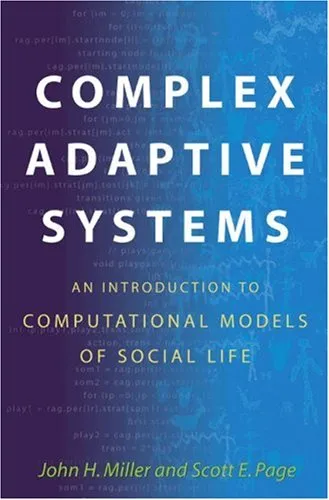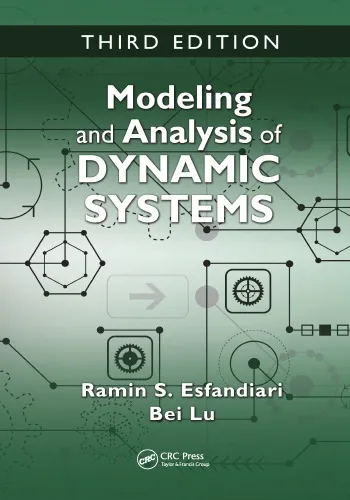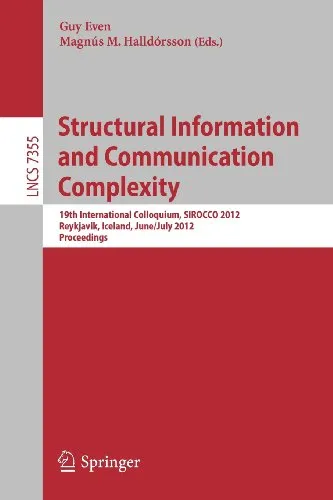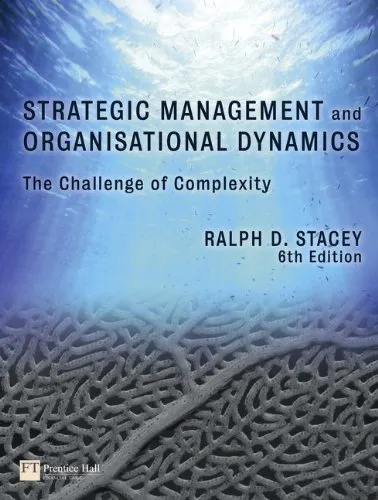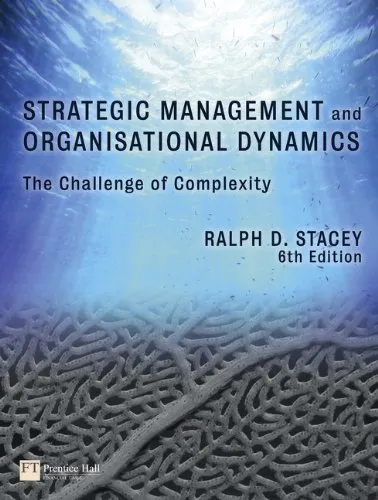Thinking in Complexity: The Computational Dynamics of Matter, Mind, and Mankind
4.5
Reviews from our users

You Can Ask your questions from this book's AI after Login
Each download or ask from book AI costs 2 points. To earn more free points, please visit the Points Guide Page and complete some valuable actions.Related Refrences:
Welcome to an exploration of the intricate tapestry of complexity with the renowned book "Thinking in Complexity: The Computational Dynamics of Matter, Mind, and Mankind" by Klaus Mainzer. This book serves as a comprehensive entry point into understanding the fascinating world of complex systems and how they permeate various aspects of our existence, from natural phenomena to human behavior and societal constructs. Delve into the dynamics that govern our universe using computational perspectives that bridge scientific theory and real-world applications.
Summary of the Book
The essence of "Thinking in Complexity" revolves around the concept that complexity is not just a characteristic of intricate systems but a foundational quality of both nature and our collective human endeavors. Klaus Mainzer embarks on a journey to explain how complexity science allows us to understand systemic functions and behaviors through the power of computation and mathematical models. The book unravels the layers of complexity found in matter, mind, and human society, offering insights into the self-organizing principles that guide them. By examining complex systems, Mainzer provides readers with a framework to comprehend everything from chaotic patterns in nature to the emergent properties of cities and technological networks.
Key Takeaways
Through a deep dive into the book’s core ideas, readers gain a multitude of key insights:
- Complex systems theory provides a lens through which we can better understand the interconnectedness and interdependence within our world.
- Self-organization and emergent behavior are central themes in explaining how complex phenomena arise without centralized control.
- Computation is pivotal in modeling and simulating complex systems, allowing us to test theories and predict outcomes more accurately than ever before.
- The dynamics of complexity have profound implications not only for natural sciences but also for sociology, economics, and artificial intelligence.
Famous Quotes from the Book
Klaus Mainzer's "Thinking in Complexity" is rich with thought-provoking observations and insights. Here are a few memorable quotes:
"Complexity is not just about size, but about the intricate interdependencies and interactions that give rise to novel and unexpected behaviors."
"In a world governed by complexity, understanding is the key to adaptation and survival."
"Computation is the language of complexity, revealing the hidden patterns and structures that underpin our universe."
Why This Book Matters
"Thinking in Complexity" is more than just a scholarly text; it is a beacon for those seeking to navigate the convoluted paths of modern science and technology. As our society becomes increasingly entangled with intricate systems—from global networks to ecological dynamics—the principles of complexity science become essential in crafting solutions to contemporary challenges. Klaus Mainzer's approachable yet comprehensive treatment of these ideas ensures that both academics and general readers alike gain valuable knowledge. This book is a testament to the power of interdisciplinary thinking, making it an indispensable resource for anyone interested in the future of science, technology, and social progress.
Free Direct Download
You Can Download this book after Login
Accessing books through legal platforms and public libraries not only supports the rights of authors and publishers but also contributes to the sustainability of reading culture. Before downloading, please take a moment to consider these options.
Find this book on other platforms:
WorldCat helps you find books in libraries worldwide.
See ratings, reviews, and discussions on Goodreads.
Find and buy rare or used books on AbeBooks.
1480
بازدید4.5
امتیاز0
نظر98%
رضایتReviews:
4.5
Based on 0 users review
Questions & Answers
Ask questions about this book or help others by answering
No questions yet. Be the first to ask!



